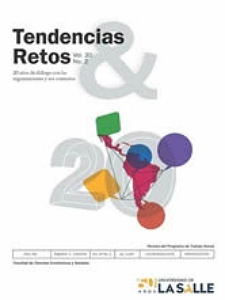Abstract
Women’s access to higher education in Venezuela and Colombia came in the third decade of the twentieth century. Their admission occurred in those professions that were socially perceived as appropriate to the nature of female work due to its lower demand for physical effort and its sedentary nature, besides those considered inherent in their “maternal” spirit. Access to the university in Colombia was facilitated by socio-political and economic changes accompanying current industrial growth; and in Venezuela, by transformations related to the oil shock and the growth of public administration, elements which would later lead to the professionalization of women’s work. This article reconstructs the admission process of women to higher agricultural education in both countries, with a historical-comparative methodology that characterizes the socioeconomic and cultural environment to overcome the difficulties faced when entering a socially vetoed field due to its masculinization.Downloads
Download data is not yet available.



